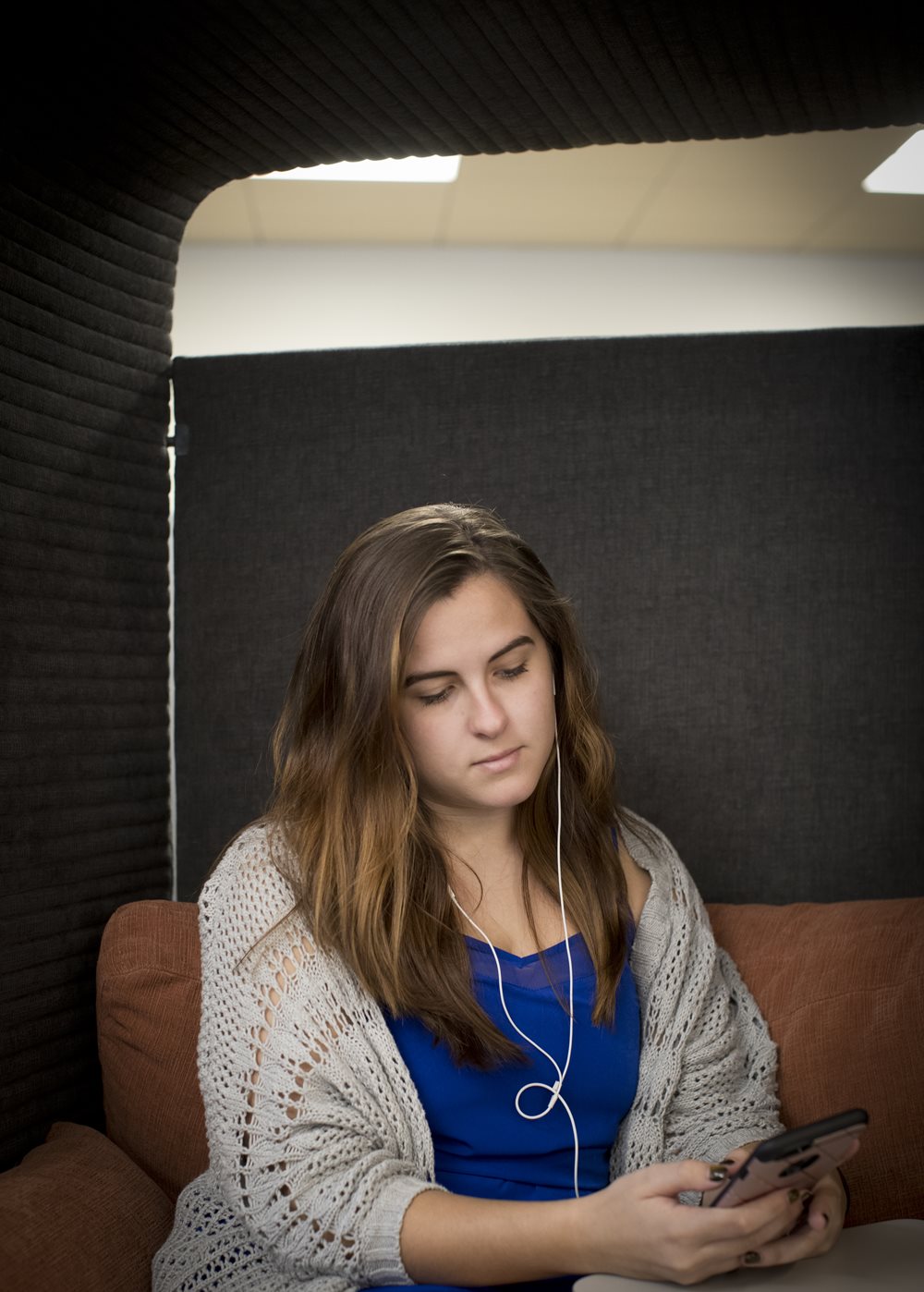Turn Down for What?
 Almost everyone uses headphones whether at work, at the gym, or in the car. They are simply a staple in our modern, fast-paced world, but even more so among teenagers. Even if they are not aware of it, the overuse of headphones pose a threat to today’s youth. Most MP3 players according to “Hearing Loss and Headphones - Is Anyone Listening?” are often played at approximately 120 decibels – equivalent to a rock concert. At that consistent level, hearing loss can occur within an hour and fifteen minutes.
Almost everyone uses headphones whether at work, at the gym, or in the car. They are simply a staple in our modern, fast-paced world, but even more so among teenagers. Even if they are not aware of it, the overuse of headphones pose a threat to today’s youth. Most MP3 players according to “Hearing Loss and Headphones - Is Anyone Listening?” are often played at approximately 120 decibels – equivalent to a rock concert. At that consistent level, hearing loss can occur within an hour and fifteen minutes.
The prevalence of headphone use may be to blame for the increase in hearing loss across the teenage population. According to Consumer Reports, “hearing loss in teenagers increased by up to 51% between 1994 and 2006” and “15% of children between the ages of 12 and 19 in the United States have some degree of hearing loss.” Although the level of hearing loss has been relatively static over the past two decades, it is still a cause for alarm, due to the repercussions it may include.
Hearing loss associated with negative psychological and psychosocial effects on teenagers include confusion, isolation, and a loss of independence and identity. It has also been shown to cause a decrease in academic and work performance, a decrease in participating in social activities, it impact relationships, and creates difficulties with learning.
While hearing loss in teenagers may occur as a result of headphone related damage, it can also occur from congenital defects, an ear infection, head trauma and disease. Signs of hearing loss include difficulty understanding speech, muffled sounds, music or television played at a high volume, and “ringing, roaring, or buzzing in the ear.” A recent study also discovered a higher prevalence of hearing loss in teen boys, specifically those who had three or more ear infections since childhood. In addition, males in ethnic or socioeconomic minorities were also more prone to hearing deficits.
Hearing can impact teenagers across cultures. A study at the Georgia Institute of Technology reports children who are born deaf experience greater developmental delays than teenagers who develop hearing loss later on. These developmental delays can include language, short-term memory, and a lower reading level at the age of 17 or 18.
Additional research on teens is necessary, but to reduce the psychological effects related to teen hearing loss, professionals suggest learning new communication techniques. Additionally, offering space to the individual, building a community, and nurturing their sense of identity are also essential. Audiologists at the Pennsylvania Ear Institute (PEI) offer many resources including diagnostic and rehabilitative services to aid families in the diagnosis and treatment of hearing loss. To schedule a complimentary hearing screening during the month of May please call: 215.780.3180.